July 2019, Volume 30, Issue 3
The Decay of the Central American Left
Following the settlement of the revolutionary conflicts that long plagued the region, the left was able to reach power through elections. But the results have been discouraging.
816 Results
July 2019, Volume 30, Issue 3
Following the settlement of the revolutionary conflicts that long plagued the region, the left was able to reach power through elections. But the results have been discouraging.
October 2013, Volume 24, Issue 4
Reports on elections in Albania, Bhutan, Cambodia, Iran, Kuwait, the Maldives, Mali, Mongolia, Togo, and Zimbabwe.
Summer 1991, Volume 2, Issue 3
Excerpts from: the Ethiopian People’s Democratic Movement party program; the “Mexico Declaration” on the civil war in El Salvador; the manifesto of Kenya’s newly launched “National Democratic Party”; Freedom House president Max Kampelman’s remarks on the Dalai Lama.
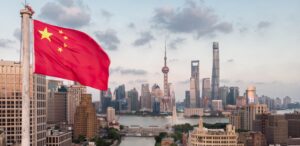

April 2021, Volume 32, Issue 2
China’s fast economic rise has not dented its dictatorship, but Xi Jinping’s neo-Stalinist strategy has unleashed new challenges and tensions for the Communist Party’s long-term prospects for survival.
January 2002, Volume 13, Issue 1
Reports on elections in Argentina, Bangladesh, Bulgaria, The Gambia, Honduras, Mauritania, Nicaragua, Poland, Sri Lanka, and Taiwan.
July 2000, Volume 11, Issue 3
The (Un)Rule of Law and the Underprivileged in Latin America, edited by Juan E. Méndez, Guillermo O’Donnell, and Paulo Sérgio Pinheiro, offers a harsh appraisal of the region’s legal and justice systems.
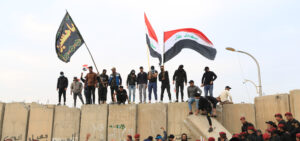

April 2023, Volume 34, Issue 2
Although Saddam fell twenty years ago, the politicians who have come after him still think like Baathists. But a new generation has begun making itself heard. It believes in Iraq as a nation and it understands democracy as more than a source of spoils to be divided among groups.
July 2014, Volume 25, Issue 3
In order to mark democracy’s progress and to inform policy, we need to be able to measure democracy in sufficient detail. The V-Dem Project aims to deliver exactly such a tool.
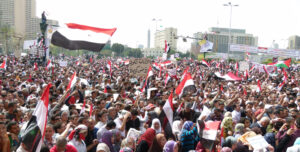

January 2021, Volume 32, Issue 1
A decade ago, Arab peoples stood up and sought to replace their rulers with a more democratic political project. But Arab autocrats have a project of their own. Can the people gain ground in the struggle for self-government, or will their rulers bear it away?
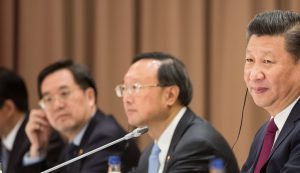

July 2021, Volume 32, Issue 3
Beijing is using red tape, procedural rules, and a little help from its authoritarian allies to strangle NGOs seeking to participate in the world body.
July 1996, Volume 7, Issue 3
Reports on elections in Albania, Bangladesh, Benin, Chad, Cyprus, Czech Republic, Dominican Republic, Ecuador, India, Sierra Leone, South Korea, Suriname, Taiwan, Uganda, Western Samoa, Zimbabwe.
January 2015, Volume 26, Issue 1
Reports on elections in Bolivia, Bosnia-Herzegovina, Botswana, Brazil, Bulgaria, Croatia, Latvia, Liberia, Mauritius, Moldova, Mozambique, Namibia, Romania, Tunisia, Ukraine, and Uruguay.
January 2014, Volume 25, Issue 1
Excerpts from: a speech delivered in North Korea by Mongolian president Tsakhiagiyn Elbegdorj; Aung San Suu Kyi’s speech honoring Václav Havel; the joint statement of governments participating in a meeting on the growth of restrictions on civil society globally; the charter of the newly formed Asia Democracy Network.
April 2011, Volume 22, Issue 2
In China, the Internet is not merely contested space between citizen and government. It is also a catalyst for social and political transformation, offering the possibility of better governance with greater citizen participation.
October 2020, Volume 31, Issue 4
When asked by presidents to intervene domestically for crime-fighting or civil-order purposes, Latin American militaries face a number of risks and have a degree of freedom to tailor their responses accordingly.
January 2011, Volume 22, Issue 1
A powerful “salafist” public norm has taken root in the Arab world, becoming the main symbol of resistance to Westernization. At the same time, however, new cultural forces in the private domain are promoting a dynamic of secularization.
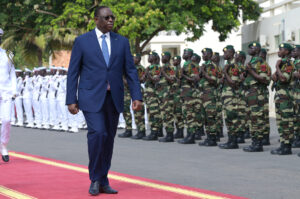
President Macky Sall has called off his country’s presidential election just weeks ahead of the vote. His unconstitutional decree will not only keep him in power, but threatens to throw Senegal into violent chaos.
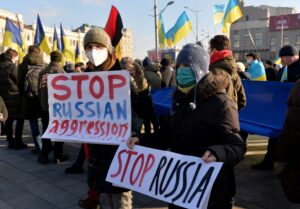
If the West forces Kyiv to accept Putin’s diplomatic terms, he will have succeeded without firing a shot.
January 2006, Volume 17, Issue 1
Reports on elections in Afghanistan, Argentina, Azerbaijan, Bolivia, Burkina Faso, Chile, Egypt, Gabon, Haiti, Honduras, Kazakhstan, Liberia, Poland, Sri Lanka, Tanzania, and Venezuela.